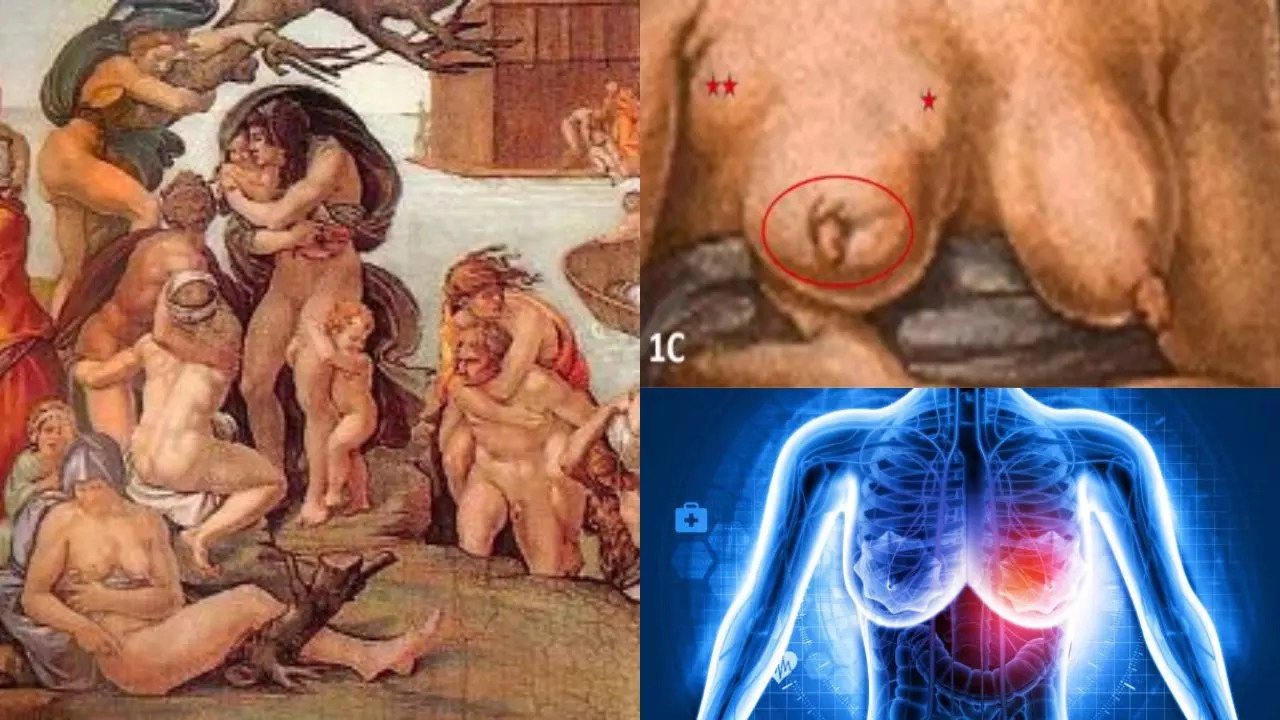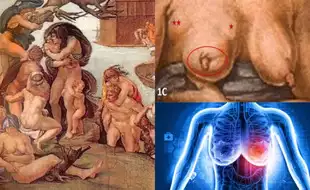
Commencement on the chapel ceiling began in 1508 on order by Pope Julius II, taking four years to complete its numerous scenes from the Old Testament and images of prophets
One of the Sistine Chapel’s popular and curiosity-provoking artworks of Michaelangelo Buonarroti – the reimagining of scenes from Genesis is now a case of interesting medical study. Researchers have found that the painting – which features at least 300 figures destined to soon die in floods, has a woman whose breast painted on the second span of the vault depicts advanced breast cancer.
This unusual representation of the deadly disease, which affects more than 2.3 million women across the world, shows that the artist not only would have been aware of it but intentionally chose to depict it in this legendary work.
The international team of experts provided insights from a variety of disciplines, combining their knowledge of art history, medicine, and genetics to diagnose the state of health of a fictitious, semi-naked woman in a scene depicting the biblical flood and propose reasons for her presence.
How did the painting come into being?
Commencement on the chapel ceiling began in 1508 on order by Pope Julius II, taking four years to complete its numerous scenes from the Old Testament, images of prophets, and representations of other noted biblical events.
Michelangelo, in his thirties then, reluctantly agreed to take the task brilliantly sculpting anatomy and capturing extraordinary levels of detail in his subjects. He carried on observations of deformity in the left breast of one of the figures as well.
How is breast cancer represented in the painting?
According to art historians, the woman – one among the crowd of fatigued bodies escaping the rising waters, wearing a blue colour headscarf is shown to be married and her finger gesture at the earth suggests her return to dust was imminent.
Various medical experts have focused their attention on her left breast - shaped by age and motherhood, with a shading indicative of retracted skin around the areolar region, and subtle swellings in the upper quarter and near the armpit.
Experts say the depicted characteristics are strongly suggestive of breast cancer.
What does breast cancer depict in the painting?
According to doctors, breast cancer in young people can be explained by an inheritance of high-risk genes, some of which have been traced back centuries in Europe. Scientists have said the design made by Michaelangelo was intentional after comparing the details with features of the woman's other breast, along with those on numerous other figures in the painting.
Also, various comparisons of photographs taken of the scenes in the past make it clear the original shape and shading of the breasts haven't changed substantially.
Michelangelo had participated in various dissections since his teens, gaining an appreciation of how the body operated on a mechanical level. The researchers refute suggestions the artist authentically copied the pathology from a model with breast cancer – or even a male model transformed with ill-fitting anatomy.
According to the scientists who published the study in the journal The Breast, this may not even be Michelangelo's only depiction of the disease. Years later also carved a feminine representation of the night for the tomb of Giuliano de' Medici with a similarly distorted breast, catching the eye of oncologists in 2000.
Get Latest News Live on Times Now along with Breaking News and Top Headlines from Health and around the world.

